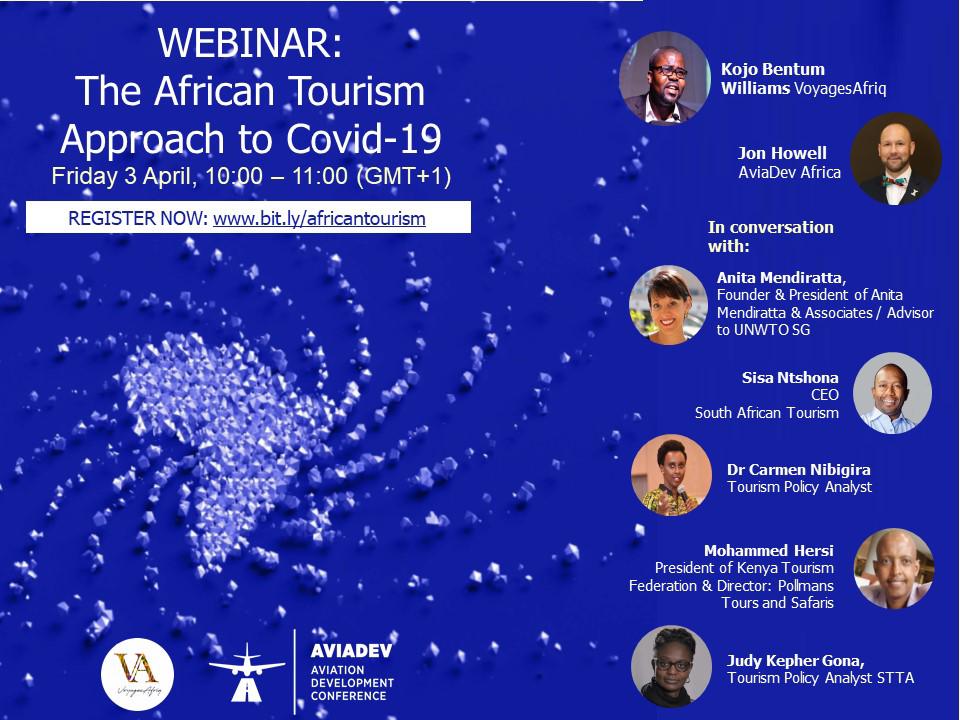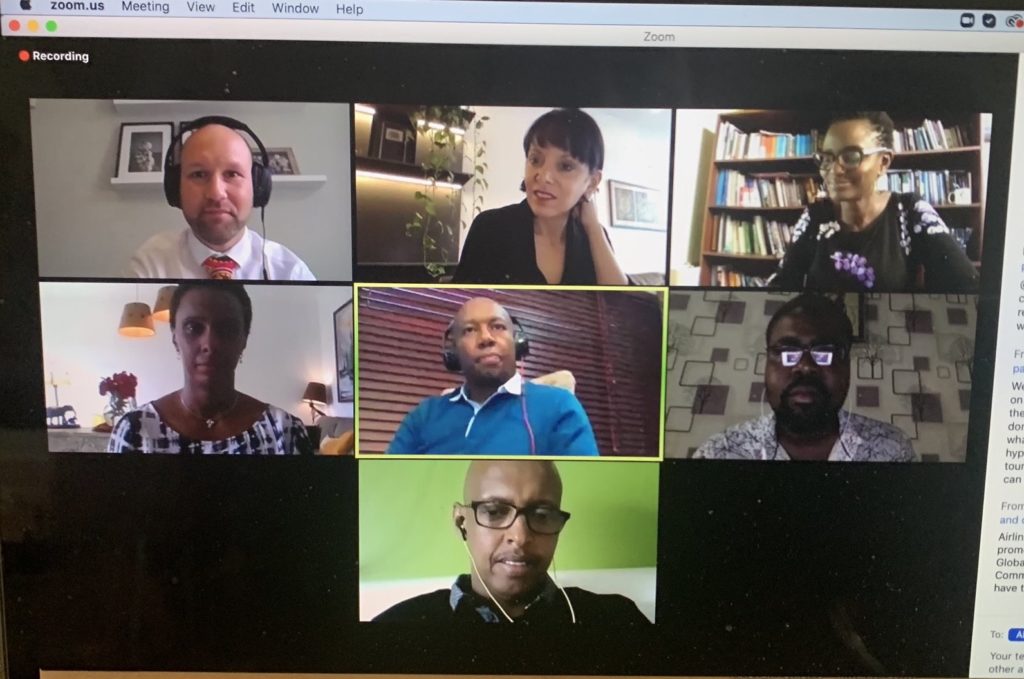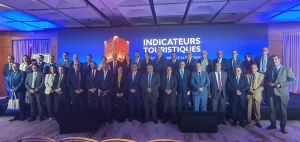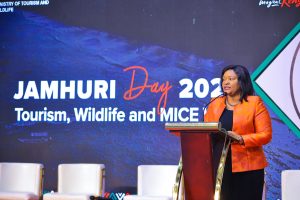With Covid-19 doing unprecedented harm to the global economy, the travel and tourism industry is one of the hardest hit sectors.
The tourism sector led by the World Tourism Organization (UNWTO), the United Nations specialized agency for tourism has led with a campaign for all to stayhome and travel tomorrow while working with the World Health Organization to navigate this crisis.
Africa is not left off the economic catastrophe even with its less covid-19 cases. VoyagesAfriq Travel Media in a partnership with AviaDev Africa organized the first of its regular webinars to bring the conversation to the African Tourism community. In the maiden #TourismWebinar hosted last week Friday, a well-oiled and experienced panel helped Africa look at how the African tourism industry can navigate the pandemic.
The CEO of South African Tourism Sisa Ntshona’s view on the need for destination managers to vary tourism communication was well articulated when he cited what his outfit was doing to promote the stayhome and travel tomorrow campaign led by UNWTO.
‘’ We’ve got to remain present and top of mind in our important markets but we got to change the shape and form that we are present so we can no longer put fancy pictures of how great South Africa is .. in fact, we tell them not to visit now. and there lies in the tactical and smart-ability but also promoting the safe message permeating across the tourism space led by UNWTO which essentially says stay home and travel later’’ Mr Ntshona said.
Anita Mendiratta, Founder and President of a London-based international consulting firm & respected Tourism & Development practitioner and published author lauded the announcements of stimulus packages by Governments for the tourism sector but she however was quick to points out the challenges for SMEs to access it. She believes that post covid-19 will grow confidence in domestic tourism products.
‘’We have the time to reengineer tourism, let’s create the relationships, the macro and micro levels. Stimulus packages are made available to the tourism sector and ensure domestic tourism is part of the recovery. Sustainability is not just about green, nature, its economic sustainability, social, cultural sustainability and critically spiritual sustainability’’

‘’We are being given unbelievable opportunity to relook our ways and make sure travel and tourism continues to be a critical vehicle of global health’’ she concluded.
Sustainable Tourism Champion and Founder of Sustainable Travel and Tourism Agenda (STTA) Judy Kepher-Gona pointed out why African states need to inculcate the sustainability principles to forge when tourism restart again. ‘’ sustainability will take over tourism either by design, it was a matter of time. Tourism does not need a recovery but a restart which will bring back to basics.
‘’As Africa moves forward to restart its tourism, to re-imagine tourism, we must pay attention to data. Tourism data in Africa is not reliable. Therefore, in the current emergency, we cannot use unreliable data to plan for recovery. The recovery plans informed by unreliable data will always be short term, and tourism is bound to be back to crisis emergency often. Data, going forward, is going to be very important for Africa’’ she said.
On her part, Tourism Policy analyst Dr Carmen Nibigira revealed why the Coronavirus offers Africa the opportunity to promote the “AfricaWithoutBoarders” and go beyond the rhetoric and institute practical measures to ensure Africans travel amongst themselves which will then mitigate against shocks of the international tourist drop.
She added that the crisis has called the world to look at tourism from different point and angles. ‘’We have been relying so much on external markets. There has to be a shift from inbound to domestic and regional markets. The reality is that we need to change to accommodate creativity and adjustments’’
Industry veteran and President of the Kenya Tourism Federation who is also the Director of Operations at Pollmans Safaris and Tours, Mohammed Hersi revealed the plans and measures by the Federation and Government of Kenya to protect jobs and mitigate their suffering in situation like this.
‘’Tourism industry in Kenya has decided to be responsible this time around we have very strong unions we are working with them. One of the things we’ve done is that April, May & June all the staff are on full pay 80% of staff are on permanent and none of us have sent them away. If things don’t change from June, we have discussed with the unions and we are going on unpaid leave for two weeks and two weeks’ pay at least people have 30% of their salaries’’ Mohammed revealed.
‘’On the sustainability side especially on the safari lodges, when people are out of their employment, poaching will come back because people will start looking for ways and means to earn a living and that is a big threat we need at and not just concentrate on occupancy levels and say other things will take care of themselves, sustainability is crucial’’
Click the link below to listen to the full webinar
The African Tourism Approach to Covid-19







